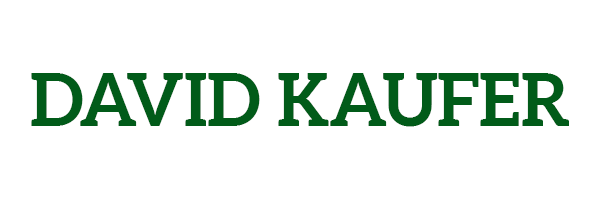Healthcare is full of examples where the benefits of an intervention far outweigh the potential risks. From surgeries to lifesaving cancer treatments, medical professionals and patients understand that even the most advanced therapies come with trade-offs. Yet, we accept these risks as a necessary part of improving or saving lives. Why, then, does the American Speech-Language-Hearing Association (ASHA) label what I call Autonomous Cognitive Communication (ACC) methodologies like Spelling to Communicate (S2C) as “dangerous,” denying countless non-speaking students the chance to participate in their education?
Let’s take a moment to examine this double standard. Imagine if we applied the same arguments ASHA uses against Cognitive Communication methodologies to established healthcare practices.

Surgery: A High-Stakes Lifesaver
Surgery is a cornerstone of modern medicine. Whether it’s an emergency procedure to save someone after a traumatic injury or a planned operation to remove a life-threatening tumor, surgery has saved millions of lives. Yet, no one disputes that surgery comes with risks. Patients can develop infections, experience complications from anesthesia, or even die.
But we don’t call surgery “dangerous” to the point of outright banning it. Instead, we assess the individual case, weigh the risks and benefits, and proceed in the best interest of the patient. Imagine if hospitals refused to perform surgeries because the risks were deemed unacceptable? The public outcry would be deafening.
Chemotherapy: Poison with a Purpose
Chemotherapy is another example. It’s essentially poison designed to kill cancer cells. Along the way, it can wreak havoc on the patient’s body, causing nausea, fatigue, hair loss, and more. In rare cases, chemotherapy itself can lead to life-threatening complications. Yet, for many cancer patients, it’s their best chance at survival.
The medical community doesn’t reject chemotherapy outright due to its potential harm. Instead, oncologists work closely with patients to minimize risks, optimize outcomes, and provide a path to recovery. If society followed ASHA’s logic, we’d label chemotherapy as too risky and refuse to let patients use it. Can you imagine the devastation that would follow?
Organ Transplants: Life-Saving but Complex
Organ transplants save lives, but they’re not without their own risks. The procedure itself is complex and dangerous, and recipients must take immunosuppressive drugs for the rest of their lives to prevent rejection—drugs that increase the risk of infections and other complications.
Despite these challenges, no one suggests denying patients access to organ transplants because of the associated risks. Why? Because the potential to save a life or vastly improve its quality is worth navigating these dangers.
The Double Standard for Non-Speakers
Now let’s compare this to communication methodologies like Spelling to Communicate. ASHA claims that spelling, Rapid Prompt Method (RPM) and Facilitated Communication (FC) methodologies are “dangerous” without providing substantial evidence to back up this assertion. They lump everything together with facilitated communication (FC), ignoring the clear distinctions between the methodologies. For example, spelling does not involve physical touch, and spellers like my son are the sole authors of their messages, supported only by a communication partner holding a keyboard for regulation.
The real tragedy is how schools and other institutions hide behind ASHA’s stance to deny non-speaking students access to Autonomous Cognitive Communication methodologies. These students are essentially being told, “The risk of you not being fully independent in your communication is too high, so we’re not even going to let you try.” This paternalistic mindset is insulting, discriminatory, and deeply harmful.
Imagine the Same Argument Elsewhere
What if a hospital refused to treat a patient in cardiac arrest because CPR might cause a rib fracture? Or if a doctor withheld chemotherapy because of its side effects? Or if organ transplants were deemed too “dangerous” due to the risk of rejection? The absurdity is glaring.
Yet, this is precisely the argument being made against spelling methodologies. Schools and professionals are using a hypothetical risk as an excuse to deny students the chance to unlock their potential. Even worse, they’re depriving these students of their right to an education—a fundamental right that should never be contingent on arbitrary and unfounded fears.
The Real Danger: Doing Nothing
The real danger isn’t in letting non-speaking students try Autonomous Cognitive Communication methods. The danger lies in doing nothing—in assuming that these students have nothing to say, that they lack the capacity to learn, and that their voices aren’t worth hearing. The danger lies in condemning them to a lifetime of silence simply because ASHA and other institutions refuse to presume competence.
In healthcare, we accept risks because the potential benefits are so high. Spelling methodologies should be no different. The successes speak for themselves: spellers have gone on to write books, compose music, and participate fully in their communities. They’ve proven, time and again, that the benefits far outweigh any perceived risks.
A Call for Change
It’s time to reject the double standard. Non-speakers deserve the same opportunities as anyone else to explore methods that can change their lives. We need to hold ASHA accountable for its baseless claims and demand that schools stop using these claims as a shield for inaction.
Because just like surgery, chemotherapy, or organ transplants, Autonomous Cognitive Communication is about more than the risks. It’s about the possibility of a better, fuller, more independent life. And that possibility is worth fighting for.
